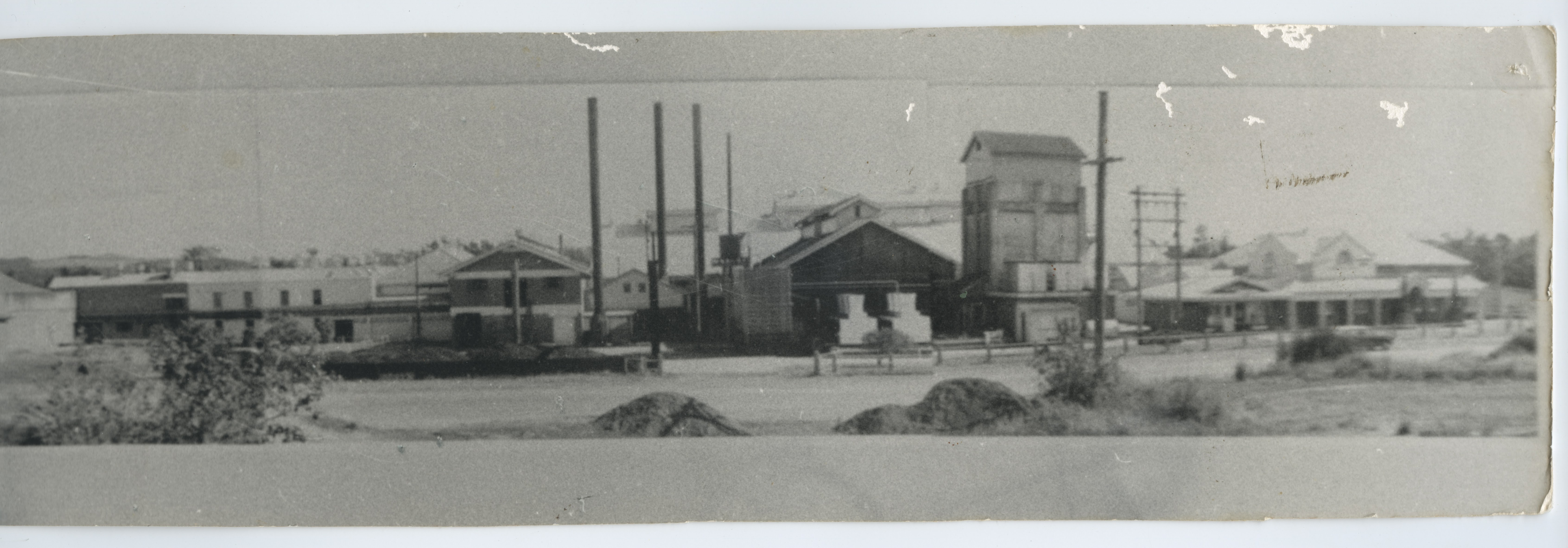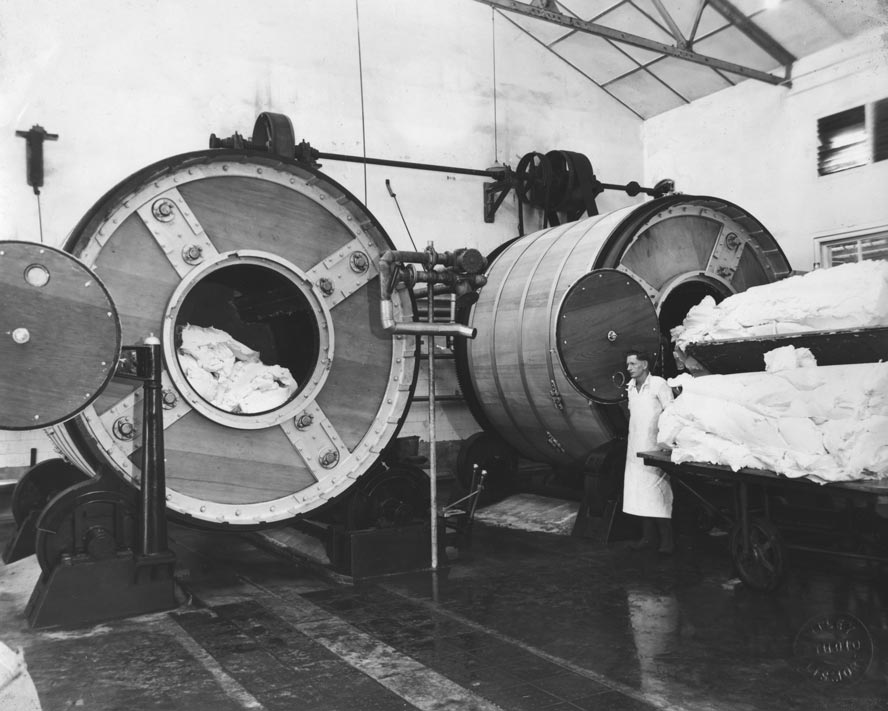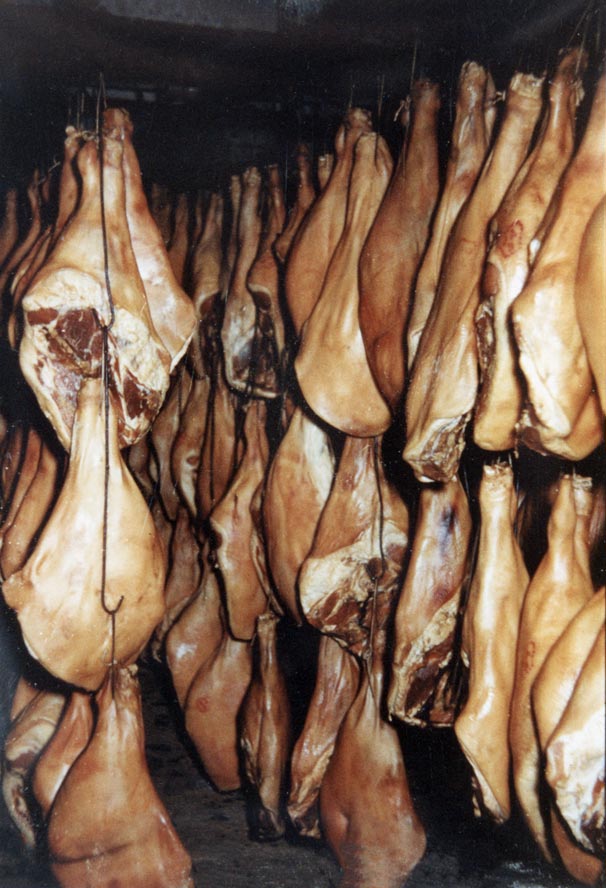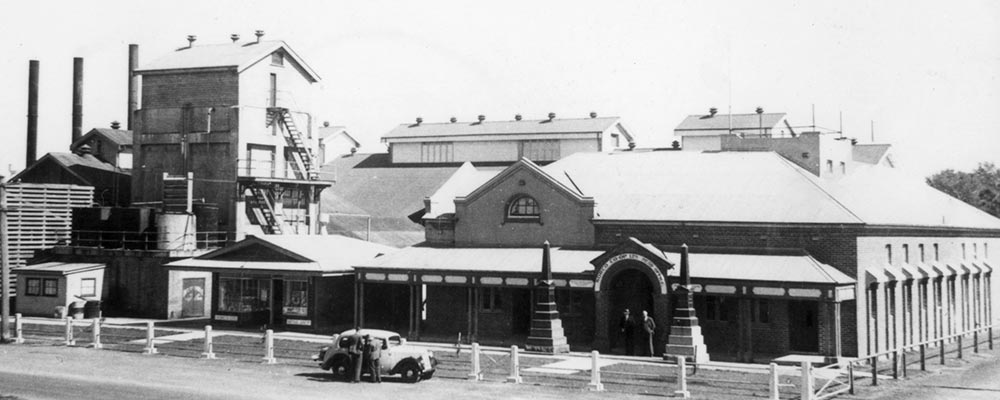Site 9: Agriculture
PREV NEXT
Agriculture was the economic foundation upon which Byron Bay was built. The first commercial crop grown was sugar cane processed at a small sugar mill at Ewingsdale from 1887. In 1890 farmers switched to more profitable dairy farming with production underpinning the NORCO Byron Bay butter factory built in 1895 at the southern end of Jonson Street. It primarily produced butter for export to Sydney and ultimately to global markets. By the 1920’s 25% of NSW’s milk production was processed at Byron Bay and by the mid 1930’s Byron Bay was producing 35,000 tonnes of butter annually or 60% of NSW’s total. It continued to dominate the States butter production until the 1960’s.

Norco (Source RTRL)
A few years after the dairy factory was built, a piggery was established in Byron Bay with the animals fed the skim milk and by-products from the dairy factory. This was the basis for the large bacon, ham, sausage and small goods industry that was part of NORCO’s Byron Bay business.
NORCO’s butter factory closed in 1972 and its bacon factory in 1975.

Large butter churns – 1950s (Source EJW photo RTRL)

Bacon sides and hams hanging in the smoking room – 1950s (Source EJW photo RTRL
Bananas, a significant early crop, became important following WWI with annual production reaching 200,000 cases in the 1930’s climbing to a peak in the 1960’s then declining to current low levels.
Byron Bay’s first beef processing meatworks was established just before WWI but did not become a significant producer in the early 1930’s, exporting to Sydney markets and to Britain. From 1959 boneless beef was exported to the US market. Beef production peaked in 1964 and declined steadily until 1983 when the meatworks was closed.
That marked the end of Byron Bay’s 90 year “butter-bacon-bananas-beef” agricultural era.
Macadamia nuts, coffee and other speciality fruits, vegetables and animal protein are the main agricultural products now.

Norco factory site 1960s (Source EJW RTRL)
Sunnybrand Chicken started in the early 1970s as a chicken processing plant employing 3 people handling 200 chickens per day. It quickly grew into one of Byron Bay’s largest industries employing upwards of 400 people capable of processing 300,000 chickens per week and had an annual turnover of $100m.
After 30 years as a locally owned and managedoperation, it was sold to a major Australian chicken processor before being on sold to an American company who closed the operation in 2016.
This marked the end of Byron Bay’s industrial era